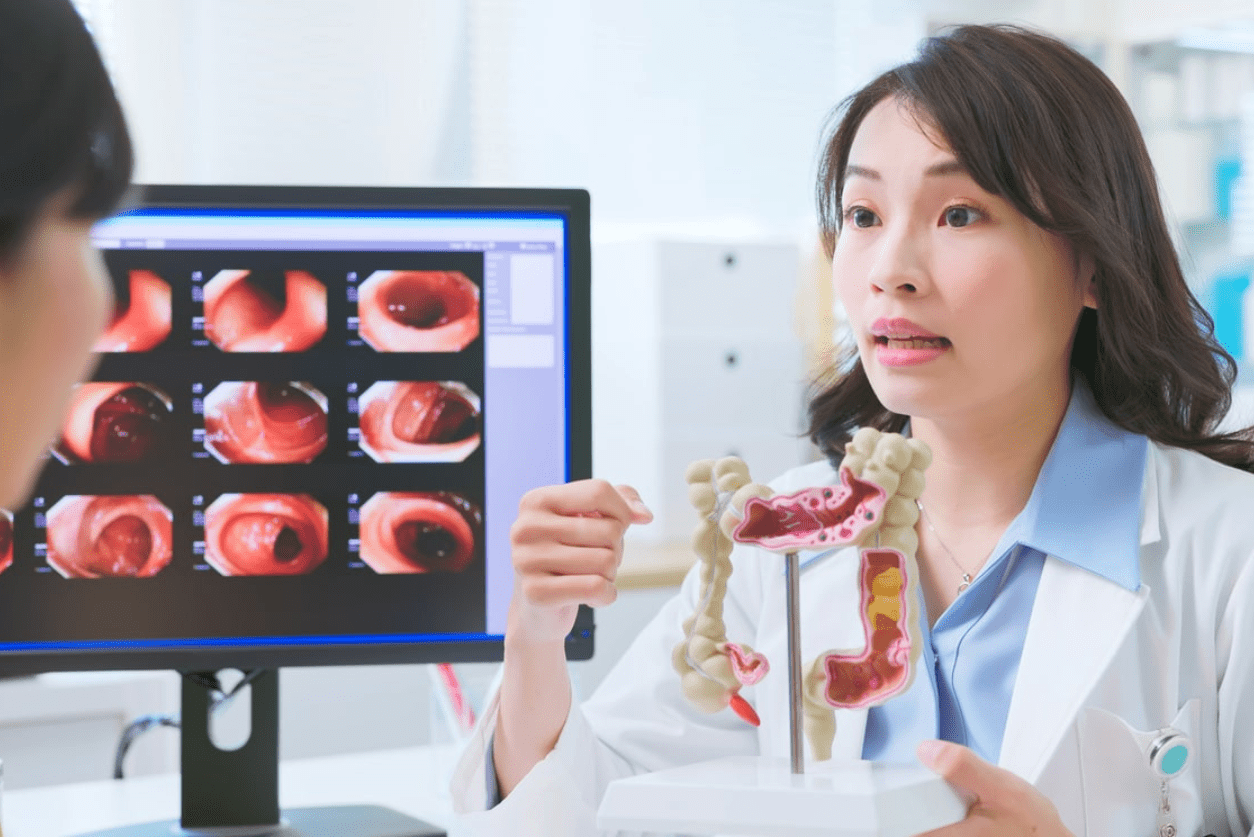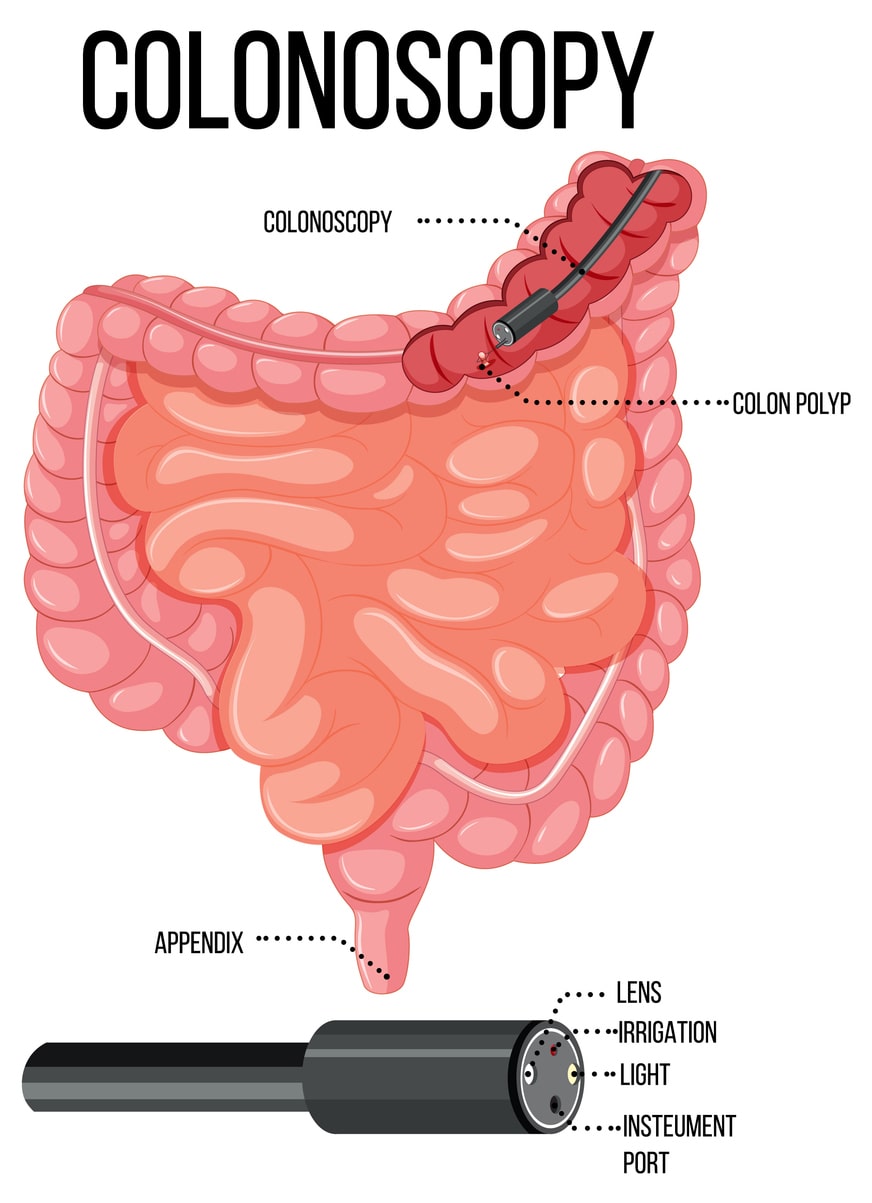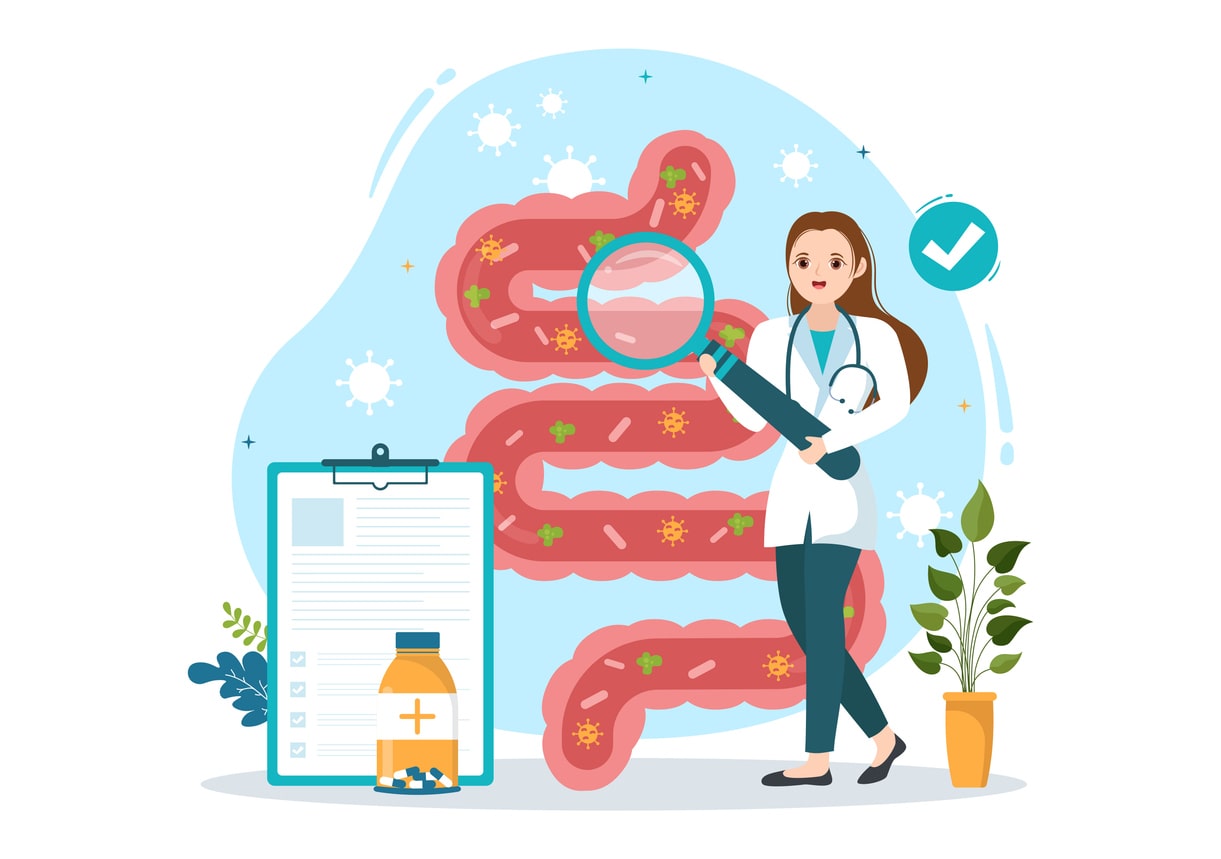
Debunking Common Myths About Colonoscopies
A colonoscopy is one of the most effective tools for maintaining digestive health and preventing serious conditions like colorectal cancer. This minimally invasive procedure gives a detailed view of the colon and allows for early detection and treatment of issues like polyps and inflammation. Whether you’re approaching the recommended screening age of 45 or have a family history of digestive issues, understanding the importance of this procedure can help you take proactive steps toward long-term health and peace of mind.
What is a Colonoscopy?
A colonoscopy is a test to examine the colon and rectum. It helps to find problems like polyps, inflammation, or colorectal cancer. During the procedure, a doctor uses a thin, flexible tube with a tiny camera at its tip, called a colonoscope, to provide a detailed view of the colon’s lining. It is typically performed under sedation, ensuring minimal discomfort for the patient. Colonoscopies are vital for prevention – they help doctors find and remove cancerous growths before they spread. This procedure is often recommended for those aged 45 and older or with a family history of colorectal issues.

10 Common Colonoscopy Myths Debunked
- Misconception: Colonoscopies are extremely painful.
Truth: Colonoscopies are generally well-tolerated due to sedation or anesthesia, which ensures that most patients feel little to no pain during the procedure. The discomfort, if any, is usually mild and short-lived, often limited to bloating or gas afterward as the air used during the exam is released.
- Misconception: Only people with symptoms need a colonoscopy.
Truth: Colonoscopies aren’t just for those with symptoms—they’re a vital preventive measure. Even if you feel completely healthy, it’s strongly recommended to schedule a colonoscopy screening. It can find early signs of colorectal cancer, polyps, and other gastrointestinal conditions that may not show symptoms until they are advanced and harder to treat.
- Misconception: The procedure takes a long time.
Truth: A colonoscopy typically takes 30 to 60 minutes. The preparation can take a little longer, as it requires cleansing the colon before the procedure. This usually involves drinking a solution and fasting for a few hours prior to the procedure.
- Misconception: Colonoscopies are only for people over 50.
Truth: Regular screenings should begin at age 45. Those with a family history of colorectal cancer, genetic risks, or other factors may need to begin earlier. Your doctor can provide guidance based on your personal health history.
- Misconception: You can’t go back to normal activities after a colonoscopy.
Truth: Most people can resume normal activities the next day after the procedure. However, because sedation is used, patients should avoid driving and plan to rest for the remainder of the procedure day.

- Misconception: Colonoscopies are only for detecting cancer.
Truth: Colonoscopies do much more than detect cancer. They can spot polyps that can become cancerous if untreated. They are also used to find Crohn’s disease, ulcerative colitis, and other digestive disorders. Colonoscopies can also diagnose unexplained gastrointestinal symptoms, including abdominal pain, bleeding, and chronic diarrhea.
- Misconception: The preparation for a colonoscopy is unbearable.
Truth: Although the preparation process involves drinking a solution to cleanse the colon, it is not as unpleasant as many think. Newer, lower-volume preparations and flavored options make the process more tolerable. Your doctor can help guide you through the process to ensure it’s as comfortable as possible.
- Misconception: Colonoscopies are not necessary if you have no family history of colon cancer.
Fact: Colonoscopies are crucial for early detection of potential issues, even without a family history. Colorectal cancer can occur in individuals with no family history, and early detection through regular screenings increases the chances of successful treatment. Regardless of family history, the general recommendation is to start screenings at age 45.
- Misconception: Colonoscopies always involve a biopsy or removal of tissue.
Truth: While colonoscopies allow the doctor to remove polyps or take biopsies, if necessary, not everyone will need these interventions. Many patients undergo colonoscopies and find that everything is normal, with no biopsies or removals needed. The procedure is primarily a diagnostic tool, and interventions are only performed when necessary.
- Misconception: You only need a colonoscopy once.
Truth: The frequency of colonoscopies depends on the results and your risk factors. If your colonoscopy shows no issues, you may only need one every 10 years. If polyps are found, or you have a higher risk due to family history or certain conditions, your doctor may recommend more frequent screenings.

What to Expect Before, During, and After
If you’re feeling nervous about an upcoming colonoscopy, understanding what to expect can help ease your concerns. Expect the following:
- Before the Procedure: You’ll be given specific instructions, which may include fasting for several hours before the procedure and taking a special solution to cleanse your colon. This ensures the doctor can clearly view the colon during the exam. You’ll also need to arrange for someone to drive you home afterward since sedation is used.
- During the Procedure: You’ll be sedated to ensure comfort, and a colonoscope (a thin, flexible tube with a camera) will be inserted into your rectum to examine your colon and rectum. The procedure typically takes about 30-60 minutes. While you may feel some pressure or mild bloating, most people report minimal discomfort during the exam.
- After the Procedure: Once the procedure is over, you’ll rest in a recovery area until the sedation wears off. You might feel mild bloating or cramping, which is normal as the air used during the procedure is released. Most people can return to their normal activities the next day, though it’s best to rest for the remainder of the day and avoid driving.
Take Charge of Your Health with Confidence
Don’t let fear or uncertainty stand in the way of taking care of your health. A colonoscopy is a safe, effective, and essential tool for protecting your digestive system and overall well-being. At Gastro MD, we’re here to help you through every step of the process with expert guidance and compassionate care.
Our dedicated team is ready to answer all your questions and ensure you feel comfortable and informed. Take control of your health today—schedule your appointment now and make the important choice for a healthier future.



